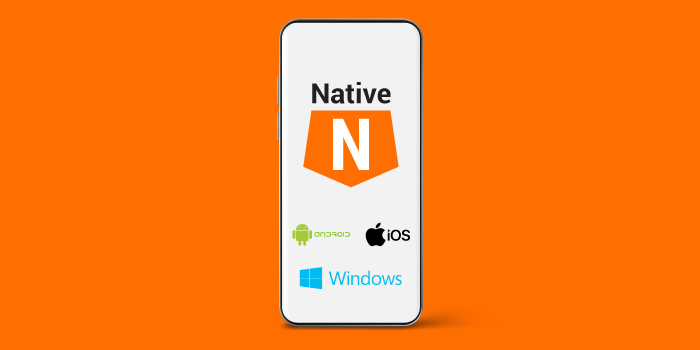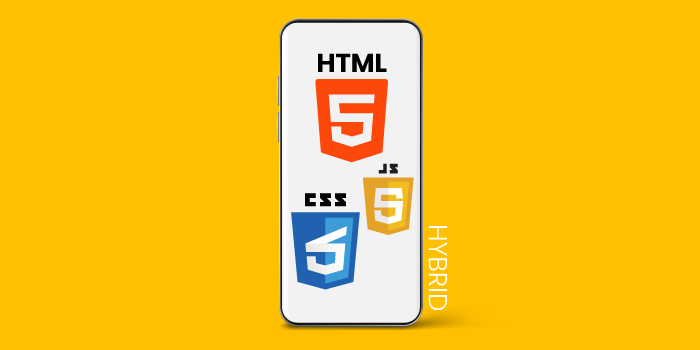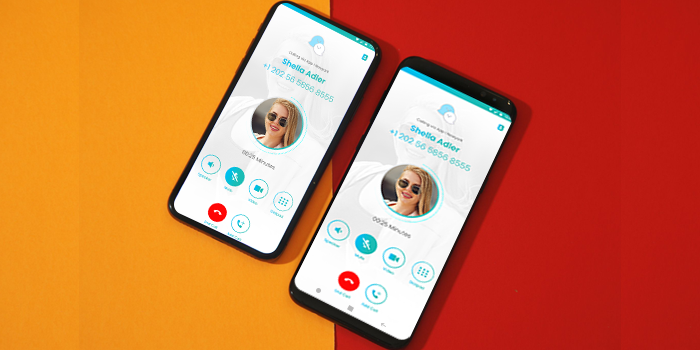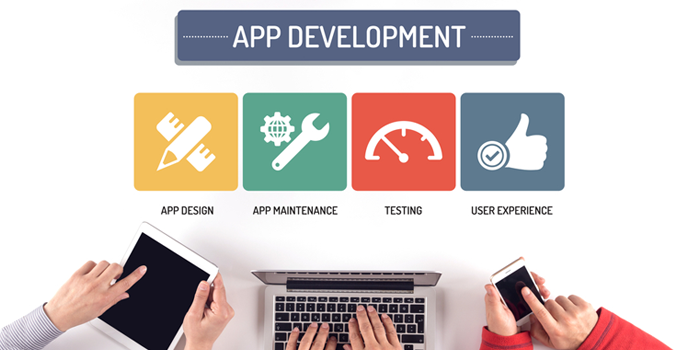
The term mobile app development services cover complete phases of app development, including business analysis, UI/UX design, testing, debugging, and deployment. It goes on to the next stage of promoting and launching the app in the market for businesses and individuals.
The App development phase comprises building a software program that can run on multiple devices such as smartphones and tablets. Developers create a variety of apps for native, hybrid, web, and cross-browser platforms. These apps can run on desktop, mobile, and smartwatch wearable gadgets.
Types of Mobile App Development Services
Following are the types of mobile application development services for businesses and customers:
Native Mobile App Development

The term native mobile app development services refer to the built-in apps in a specific smartphone such as android, iOS, or windows. Developers build apps from scratch for every unique platform and use different coding languages like Java, C, and C++. These are the powerful programming languages used to develop native applications.
Hybrid Mobile App Development

Hybrid app development provides a combination of web and native applications. In a hybrid app development process, developers write applications in plain Html, CSS, and JavaScript code. These apps are then integrated with a native app and run on any specific mobile device. Customers access these apps through android, iOS, and Windows operating system platforms.
Cross-Platform Mobile App Development

Cross-platform mobile application development gives ease to users to access their apps through any device. It uses a single code that runs on multiple platforms. Developers find it convenient to write a code for once that can execute various operating systems and save their time and effort.
Mobile App Development Frameworks

Using the mobile application frameworks provides strong backup support to the mobile app development. They comprise a software library that builds a basic structure and supports the development of apps in a particular environment. These frameworks are categorized into native, web, hybrid, and cross-platform.
The popular app development frameworks are ionic, Onsen UI, Dot Net framework, Monaca, Mono, Meteor, cocoa-touch, phone gap, react native, and Windows WPF. These frameworks can be integrated with angular, typescript, JavaScript, CSS, and VUE. Native apps are used on both android and iOS but with a change in source code. Their source code differs, and a developer has to write a new code from scratch on each platform: the flutter, Xamarin, Sencha, Corona. JQuery Mobile, Mobile Angular UI, framework 7, and Appcelerator titanium are also excellent frameworks for smartphone applications.
Leading Programming Languages for Mobile App Development

Programming languages are powerful tools to build dynamic and actionable mobile apps that run on any device or platform. The leading coding languages are Html5, JavaScript, Objective C, C-language, C++, C sharp, PHP, Python, Swift, Ruby, action script, kotlin, and Java.
These are primary languages that help create various mobile applications for android, IOS, windows, and Blackberry operating systems. They are ideal for native, web, hybrid, and cross-browser platform development and run on several devices like desktop, smartphone, tablet, and personal digital assistants. These languages are classified into front-end (client-side) and backend (server-side) mobile app development for clients.
Ways of Mobile App Development

Mobile app development can be done by implementing the three primary ways:
- Building an In-House Development Team
- Hiring a Third-Party Outsourcing Agency
- Finding the Individual Freelancers
Building An In-House Team

As the demand for mobile apps increases, many companies plan to set up an in-house mobile app production team for extra earning and profit. It requires a little or more money investment on buying the physical hardware equipment like PCs, Laptops, Servers, and networks. You need to appoint a staff of app developers, web developers, designers, and network administrators to resolve day-to-day IT issues.
Hiring A Third-Party Outsourcing Agency

It involves delegating your essential tasks to a third-party company. They are a professional digital agency who knows how to execute your tasks in less time frame. You can hand over all the primary functions, including backend and front end development, project management, product development, testing, debugging, UI/UX design, and quality assurance.
Finding The Individual Freelancers

It is an easy and cost-effective option to find a freelancer to build a mobile app for you. He is a person that makes accessible communication with you. He provides his overall skills and expertise in creating functional mobile applications single-handedly. A person has solid hands-on experience in front-end and backend coding with a good knowledge of design and UX.
Conclusion
Hence, in a nutshell, those mentioned above are the essential things to know about mobile application development services. The mobile application process is simple and straightforward that requires you to follow the steps from the start till the end. Nowadays, there is a rising demand for hiring a react native agency for building native, hybrid, web, and cross-platform applications for businesses and customers.
Also Read: Advantages Of Cross Mobile App Development For Your Business

